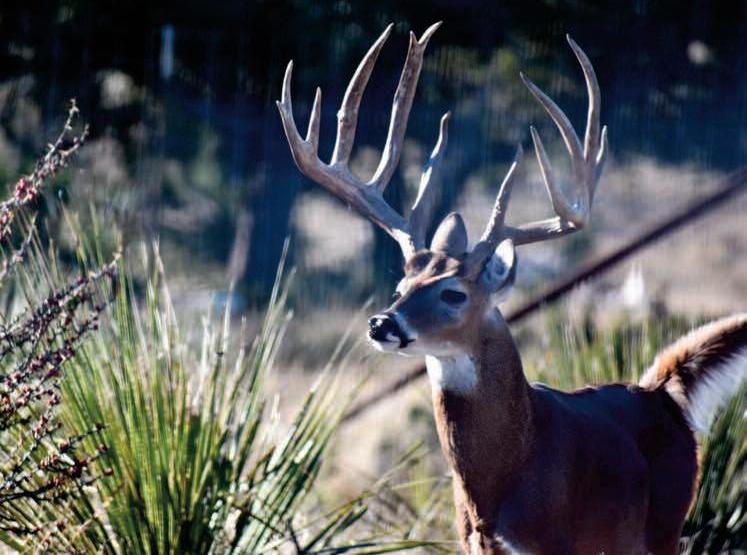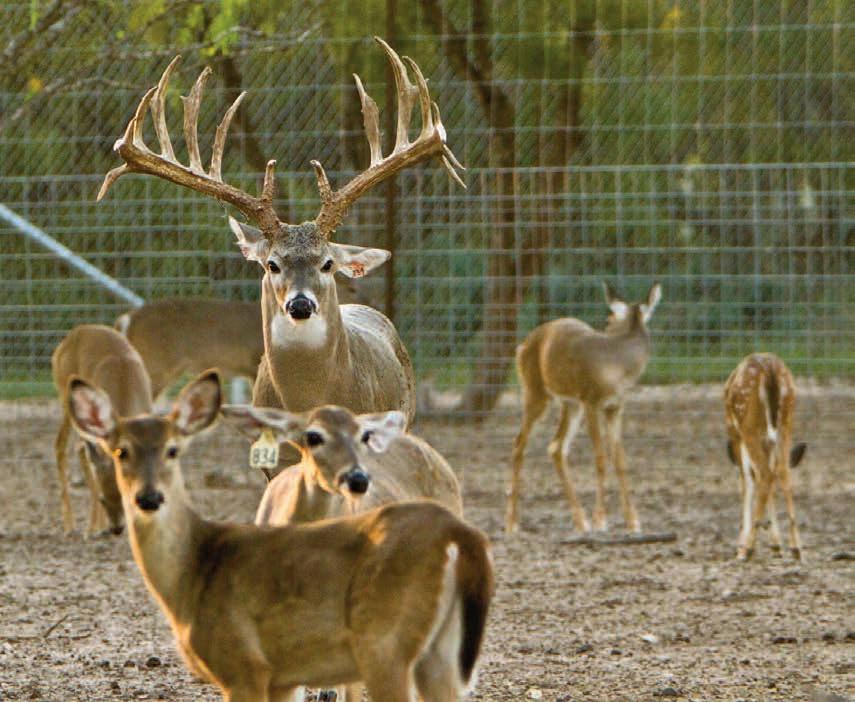
4 minute read
DEER & CORONAVIRUS
By Shawn Schafer Executive Director of NADeFA
After the announcement of tigers in a zoo and some pet cats catching covid-19 from people, I have had several members ask “what about cervids?”
Advertisement
I received a paper from a researcher that works closely with respiratory diseases such as TB, in it, they looked at the cell receptor that the current coronavirus binds to when it infects a host. They used known sequences that are in databases to predict which species have a high likelihood of being successfully infected with the coronavirus. Here is a quote from the paper: "We were surprised to find that all three species of Cervid deer and 12/14 cetacean species have high scores for binding of their ACE2s to SARS-CoV-2 S. There are 18 species of Cervid deer found in China. Therefore, Cervid deer cannot be ruled out as an intermediate host for SARS-CoV-2. While coronavirus sequences have been found in white tailed deer (53) and gamma coronaviruses have been found in beluga whales (54, 55) and bottlenose dolphins (56) and are associated with respiratory diseases, the cellular receptor used by these viruses is not known." The three deer species they looked at were white-tailed deer, reindeer and Pere David's deer. These three deer species were more likely to become infected than cats, which so far have been the domestic species most seen with any kind of clinical signs.
Most believe that the virus came from bats, went to an unknown intermediate host and then to humans.

I am only sharing this, so if you or someone else that may be around your deer, develops Covid-19 you may want to take precautions around your animals to prevent any possible transmission just like you would other people.
Here are the recommendations from the American Veterinary Medical Association -
Q: Should i avoid contact with animals, including pets, if i am sick with CoViD-19?
You should restrict contact with pets and other animals while you are sick with COVID-19, just like you would restrict contact with other people. Although there have not been reports of pets becoming sick with COVID-19 in the United States, it is still recommended that people sick with COVID-19 limit contact with animals until more information is known about the virus.
Have another member of your household care for your animals, if possible. If you have a service animal or you must care for your animals, then wear a cloth face covering; don’t share food, kiss, or hug them; and wash your hands before and after any contact with them. You should not share dishes, drinking glasses, cups, eating utensils, towels, or bedding with other people or pets in your home. Cats should also be kept indoors as much as possible.
While we are recommending these as good practices, there is no evidence to suggest that animals, including pets, that may be incidentally infected by humans are playing a role in the spread of COVID-19.
Q: if i am ill with CoViD-19 are there special precautions i should take to prevent spreading disease, including when caring for my pet?

If you are sick with COVID-19 you need to be careful to avoid transmitting it to other people. Applying some common-sense measures can help prevent that from happening. Stay at home except to get medical care and call ahead before visiting your doctor. Minimize your contact with other people, including separating yourself from other members of your household who are not ill; use a different bathroom, if available; and wear a cloth face mask when you are around other people or pets and before you enter a healthcare provider’s office. Wash your hands often, especially before touching your face, and use hand sanitizer. Use a tissue if you need to cough or sneeze and dispose of that tissue in the trash. When coughing or sneezing, do so into your elbow or sleeve. The AVMA recommends you take the same commonsense approach when interacting with your pets or other animals in your home, including service animals. You should tell your physician and public health official that you have a pet or other animal in your home. As a precaution, it is recommended that people sick with COVID-19 limit contact with animals until more information is known about the virus. So, if you are ill with COVID-19, have another member of your household take care of walking, feeding, and playing with your pet. If you have a service animal or you must care for your pet, then wear a cloth face covering; don’t share food, kiss, or hug them; and wash your hands before and after any contact with your pet or service animal. You should not share dishes, drinking glasses, cups, eating utensils, towels, or bedding with other people or pets in your home. Cats belonging to owners infected with COVID-19 should also be kept indoors as much as possible. While we are recommending these as good practices, there is no evidence to suggest that animals, including pets, that may be incidentally infected by humans are playing a role in the spread of COVID-19.





